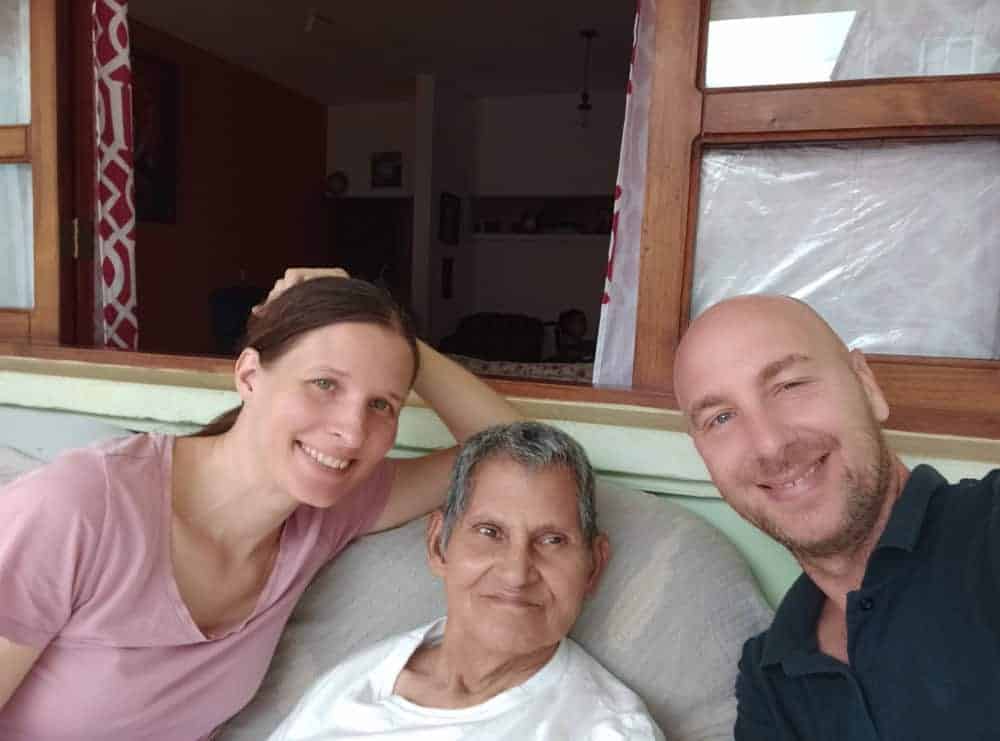Winter in Brazil is different than the weather we have, but that doesn’t mean people don’t catch a cold, viral diseases and other typical winter-related diseases.
Temperatures can drop from 30 degrees Celsius during the day to 10 degrees Celsius at night, sometimes even lower. Compared to us who come from a cold climate, people here are much more sensitive to low temperatures.
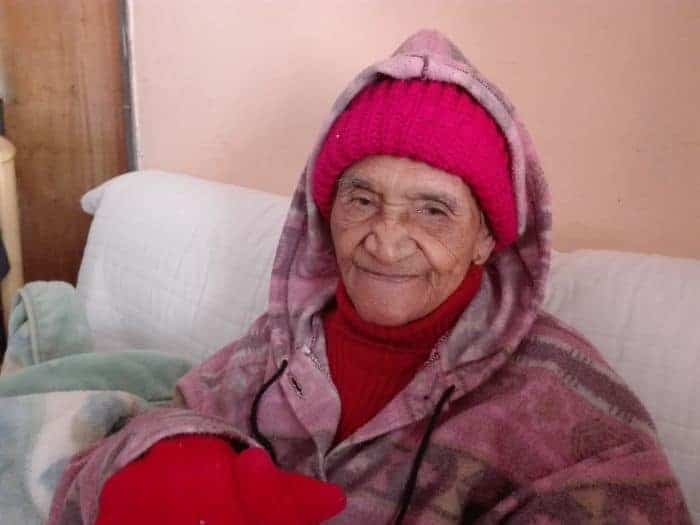
Even so, Silva and I developed a fever and a sore throat, and had stay in bed for a few days, alongside with many other locals. Even Eloi and Clara, our mission’s guard dogs, have been sneezing and coughing lately.
High Humidity
People tell us that they consider temperatures as high as 20 degrees Celsius to be very cold, requiring warm clothes. The »feels like« temperature is even lower due to high humidity.
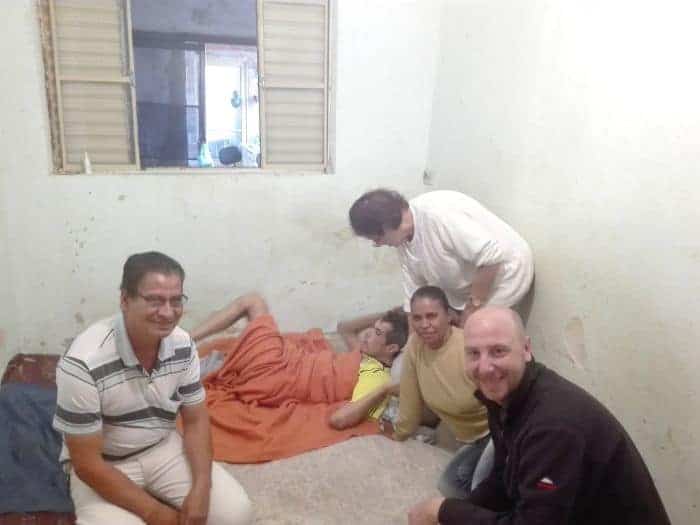
After spending the last year travelling across Asia, we are now prepared for humidity. Like fr. Riccardo in Bangladesh kot tudi missionaries here advise us to constantly drink water, as well – even if we don’t feel thirst or lack of fluid. We follow their advice, so we always carry bottles of water.
Ina’s Resounding Story
Ina’s Resounding Story resonated well among Slovenian readers. The article was read by over 2500 people. Subsequently, we received many e-mails containing best wishes and words of encouragement.
We are thankful for every donation to Operando’s account for the purchase of wheelchair and other basic necessities that Ina (and other poor families) desperately needs. We thank everyone who responded to our initiative and invite others to join in and lend a helping hand. We are still far from our goal.
We thank everyone who responded to our initiative and invite others to join in and lend a helping hand. We are still far from our goal.
We will use the money to purchase a wheelchair before we depart from Brazil. This will allow Fabio to finally enjoy the sunshine and fresh air after many years.
The Poor and Unheard
Our mission’s primary job is visiting poor families and sick people – the ones ignored by the government and therefore forced to lead a miserable existence.
Being included in volunteer groups’ activities has now become commonplace. They accompany us on our visits to people’s homes.
Our Translator
We met Regaine – a pleasant girl, one of the few who speak English in these parts.

Regaine is 26 years old, newly wed, optimistic and very responsive. She is currently out of work, since work is hard to find in Brazil, but this way she can lend us a helping hand when we need it.
We took some burden off of fr. Lucas’s shoulders. He used to accompany us on our visits and was translate from Brazilian Portuguese. Regaine hadn’t visited the families before, but has now become our regular companion, our translator and our friend.
God is at work
Just as the visits at homes touch us, they also touch Regaine.
‘I often get angry with myself and God, because my husband and I don’t have enough money and I don’t have a job. But as I listen to these stories and meet these people, I am happy and grateful for everything I have. What’s the most shocking for me is the fact that this is happening right in front of my doorstep, and I wasn’t aware of it.’
God is at work. Operando! He always finds a way to touch people and to address them, most often through the poorest among them.
Zuldia and Gilberto
Together with Regaine and some other volunteers we visited Mrs. Zuldio, who once lived in a favela, in a small barrack with polyvinyl roof, together with her husband and five children.
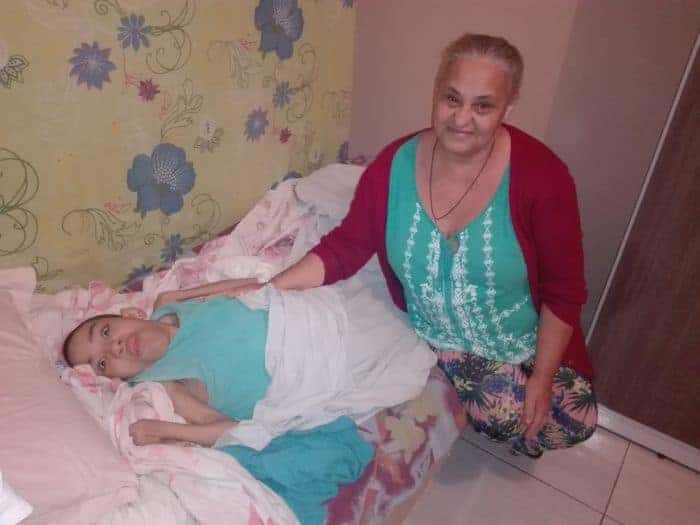
One of the children, Gilberto, is now 29 years old. When he was nine months old, he got sick with a severe form of meningitis. Since then he has been immobile and completely dependent on Zuldie.
As the volunteer Francisco told us, life in that barrack was unbearable – heat, moisture, mosquitoes… There were too many of them to survive, so the volunteers got organized and built a house for the family so that they could move to ‘civilization’.
When we visited Zuldio, Gilberto was lying on a couch, covered with blankets. His smile completely overshadowed the wretched body and distorted, small, bony hands and legs.
The family has always lived from the grace of the Vincentian volunteers because the husband is unemployed, and one of the children has been in prison for three years because he participated in drug distribution.
Young people without a future
Speaking of drugs and crime… Young people are at stake. Close to our mission there is a prison, which is the only one in the whole area of Campinas city where one million people live.
12,000 men are imprisoned in the facility that can accomodate eight thousand prisoners at most. What’s the most disturbing is the fact that 90% of prisoners are young people between the ages of 18 and 20.
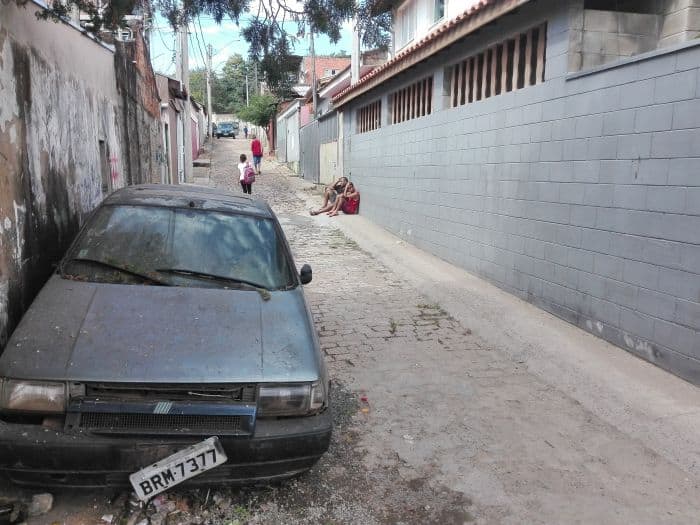
Needless to say, the prison is strict and the situation in it is inhumane, but what hurts the most is that the state cannot (or refuses) to see the root of the problem, and it tackles things only on the surface.
Inefficient education
Alfiero, one of the missionaries, told us:
‘Young people in Brazil often don’t have a bright future. Education is of a poor quality, especially in public schools, where teachers are underpaid and overburdened with work, because classes take place in three shifts – in the morning, in the afternoon and in the evening (the schoolchildren finish classes at 10 pm ). That’s why they don’t have the time nor the motivation to prepare the content well, and consequently, the children don’t acquire the knowledge that would serve them in the future education and later on at finding a job.’
Classes in public schools are of such poor quality, and the tests are so inconsistent that many of the children cannot read and write even after completing the elementary school. Of course, such children have difficulties finding a job.
Drugs and crime
There are many unemployed people, especially here in Hortolandia. In the morning and in the afternoon we see young people sitting on sidewalks or walking along the streets. They are dealing drugs and getting involved in crime just to survive.
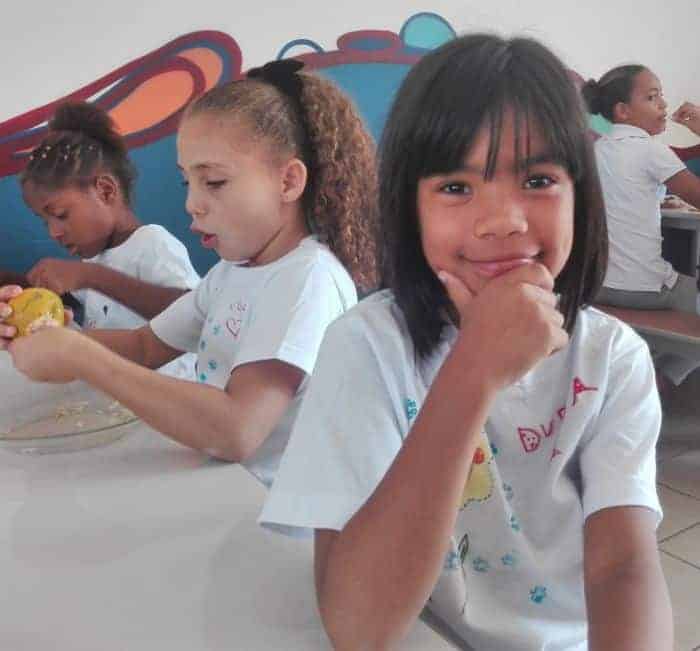
Missionary p. Giovanni illustrated the situation using numbers:
‘Out of fifty most dangerous cities in the world, eighteen of them are in Brazil. Hortolandia, where we live, is one of them.’
No fathers
There’s another thing the children in Brazil are deprived of. Fathers. Only 10% of children actually grow up in healthy families, where both parents are present. The remaining 90% live without a father who either leaves the family, goes to prison, or is physically or emotionally not present.
Pain
Let me get back to Zuldia. She was telling us about how difficult it is to take care of Gilbert. It’s getting harder to lift, wash, and move him. A difficult relationship with her husband doesn’t help either and there’s also her imprisoned son and it breaks her heart to see him in prison.
She was saying:
‘I can’t visit him. It’s too painful for me. Besides, Gilberto needs my help and presence all the time.’
She’s not getting any other income besides 700 Brazilian reals (around 160 euros) that the state is paying for expensive medicines. Like Mrs Ina, volunteers are helping Zuldia by regularly bringing her food, clothes, and what she necessarily needs for living.
When the state fails
Zuldia told us that she filed all the documents the municipality requests for the allocation of a wheelchair three years ago. It takes that long for anything to happen in the state offices. Now, after three years, the municipality responded that her documents were ‘lost’. That’s Brazilian reality.
